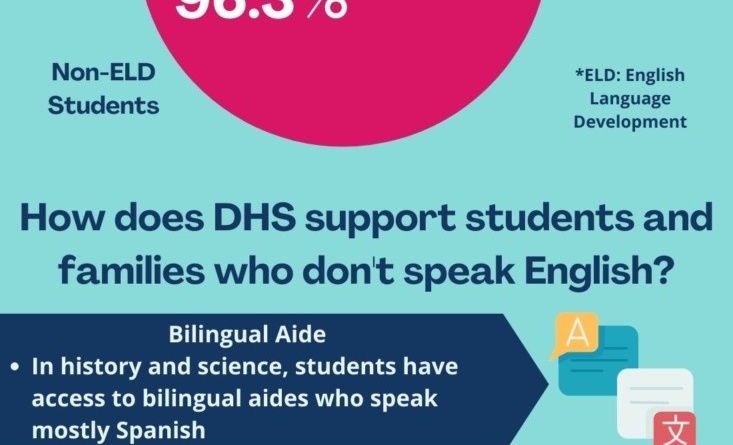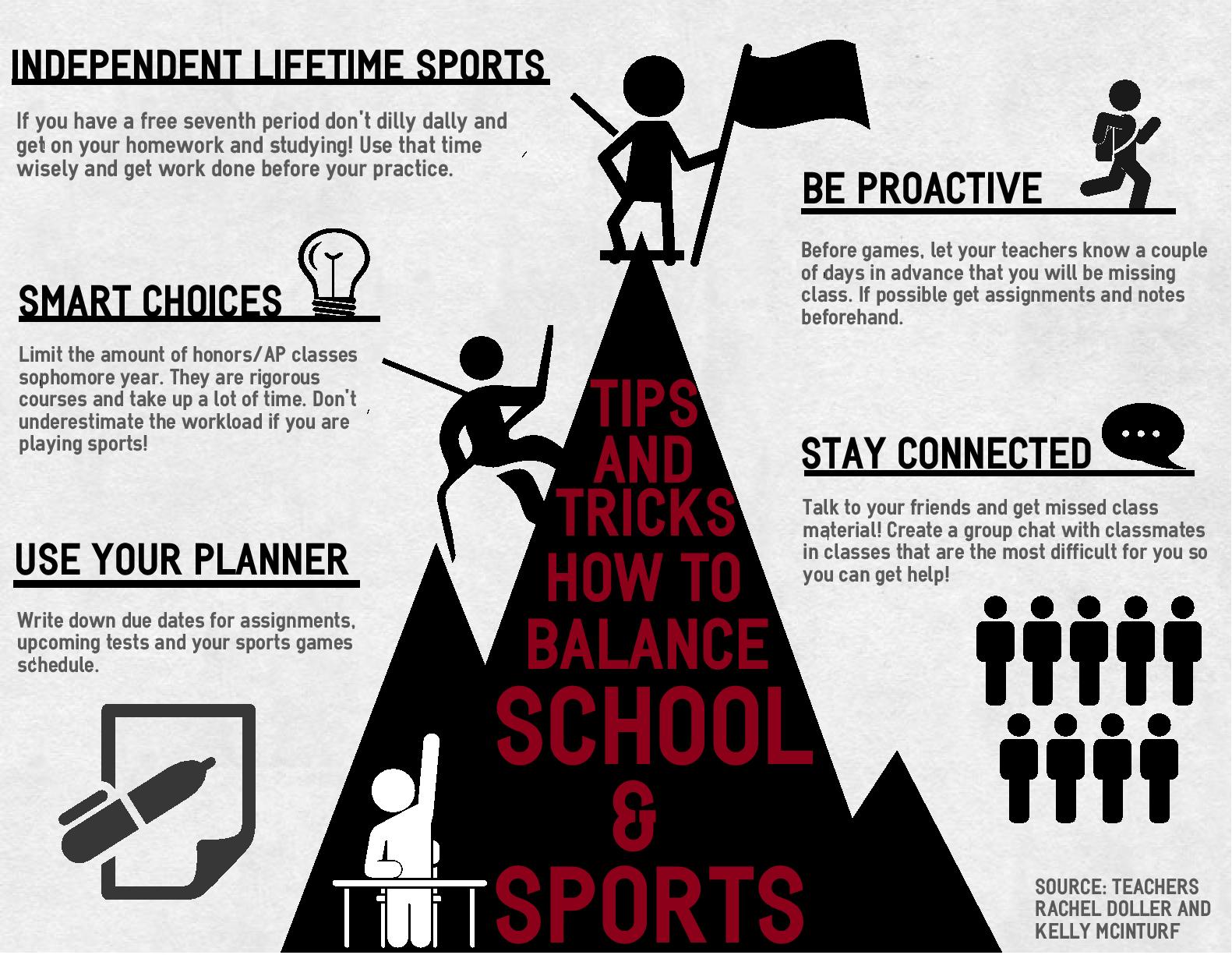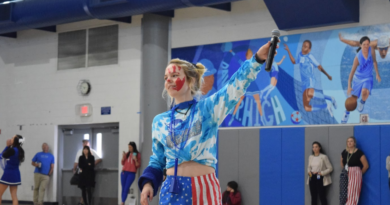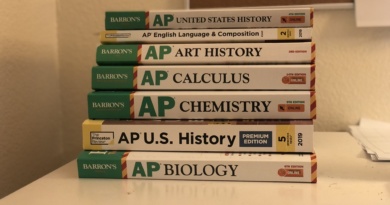District expands resources to support English learners
INFOGRAPHIC: DHS offers some resources to help students’ families that do not speak English.
By Xochitl Armién and Stella Maze,
BlueDevilHUB.com Staff–
English learners make up 3.7% of Davis High and come from a wide range of backgrounds and fluency levels.
A junior who prefers to remain anonymous is one of DHS’s newer English learners. He recently immigrated from Latin America and has been learning English for about two months.
“At first it feels uncomfortable not understanding English but as you go on learning it at school, it starts to feel better,” the student said, speaking in Spanish.
One of the ways that English language learners are supported is through in-school English Language Development classes. Students who are in the beginning stages of learning English take the English Development 1 class, and students who have been speaking English longer take ELD 2 and 3.
ELD 1 is slow paced and comparable to French 1 or Spanish 1 courses. The class focuses on teaching students the basics on how to speak and read to get through each day, what ELD 1 teacher Pernia Hassan calls “survival English.”
The ELD 2 and 3 classes are combined, and focus on explicit grammar instruction to reinforce English Language arts skills. They also work to support students in their regular English classes and provide verbal practice.
“The ultimate goal is that they’re successful in their other classes and that they pass the state test called the ELPAC (English Language Proficiency Assessments for California),” Hassan said.
On a district level, connection with families is the priority. The Language Justice and Family Partnership coordinator, Ximena Diez-Jackson, has taken on the responsibilities of improving communication with families, especially Spanish speaking families.
“At the base our focus on strengthening relationships with families is really the key,” said District Coordinator of School Climate Kate Snow.
There is an English learner specialist for on-site student support at every elementary school, and at the secondary level there is an English learner coordinator. The coordinator’s job includes case managing each English learning student’s needs including academic, social and anywhere else students and families might need assistance.
Ricardo Perez, the Director of English Learner, Immersion, and World Language Programs, explains, “they’re responsible for case managing and overseeing support services, social, academic, you name it for every English learner in the district.”
At DHS, English Language learners now take college prep classes with the rest of DHS students. In the past, DHS had “sheltered classes” specifically for English learners where they would learn modified versions of the classes.
The reason for the switch is that English learning students are more likely to pick up English if they are fully immersed in it.
According to ELD 2/3 teacher Kelly Wilkerson, the current system “is kind of sink or swim.” But, she added, billingual aides provide support.
The Academic Success Center is one of the resources created to cushion the transition to English classes. The ASC’s first job is to directly provide support and aid to English Language learners.
The ASC uses a practice called “push in”, sending individual tutors into classrooms for every English learner on a daily basis.
In order to get more students into the center for help, Wilkerson’s Wednesday block period ELD class visits the center every week to get help from tutors.
“I think (the current system) is effective to an extent,” said Mayra Chavez-Alcarez, ASC Coordinator.




